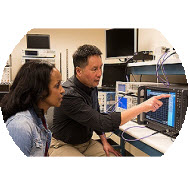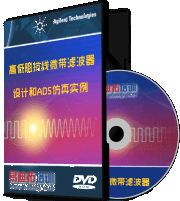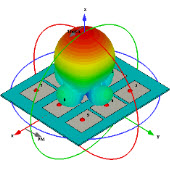据说fcc更改了cr的频谱感知和避让规则
主要是在频谱感知这块,似乎是不再要求实时对license user的进行检测避让
sensing is not required, rely on Geo database
原来是怎么要求的?
我记得原来好像就是只要在一定时间内(2s,好象是)发现注册用户就可以了,也不需要
实时啊。
这个是在哪看到的?
我看了一下那个文档,pickup interference是什么意思?
谢谢。
在哪里啊,共享一下
http://hraunfoss.fcc.gov/edocs_public/attachmatch/DOC-301650A1.pdf
TVWS R&O Changes:
1. Sensing is NOT required of TVBDs which have access to the FCC TVWS dbase.
2. Sensing only terminal is reserved as a future option and FCC encourages
continued DOD research and commercialization of sensing technologies.
3. Two TV channels will be reserved nationwide (not clear if it will be same 2 channels in
all markets) for protected wireless microphones.
4. Incumbents needing more than 2 TV channels in any market for special events and
sports venues will be able to register for and reserve additional TV channels for
wireless microphone use for these special events. These additional reservations
will be included in and protected by the FCC TVWS dbase.
5. The Canada and Mexico border exclusion zone (upto 60Km wide) is being scrapped.
Instead of blacking out TVWS use at borders, the FCC dbase will include and list
protected Canadian and Mexican stations near US borders. These foreign incumbent
stations will be protected by the same FCC dbase mechanisms protecting US incumbents.
6. New initiative coming soon to provide licensed use of TV band for RURAL broadband backhaul.
(Not clear if this will follow the Canada low-cost licensed model, the auction model, or something else.)
7. Knapp noted that he expects and hopes that the FCC can conclude on and award the TVWS Dbase manager
contracts in the "next few months." Undoubtedly, the decision to list Canadian and
Mexican incumbents will have some impact here.
主要就是从复杂的分布式感知,转变为集中管理认证,工程上方便实现,也方便FCC和国会以及TV Broadcast的势力争论。
相关文章:
- 请帮忙推荐下有关协作通信或无线感知网络这两个研究方面的书(05-08)
- Re: Compressive sensing翻译成“压缩感知”?(05-08)
- 感知无线电中 主网络对从网络的干扰需不需要考虑?(05-08)
- 哪位大拿懂压缩感知的(05-08)
- 问关于求OFDM信号频谱的问题(05-08)
- 请问:我国无线电频谱的分配表可在哪查到?(05-08)











